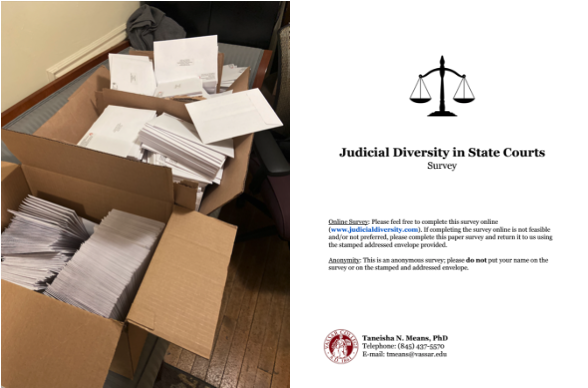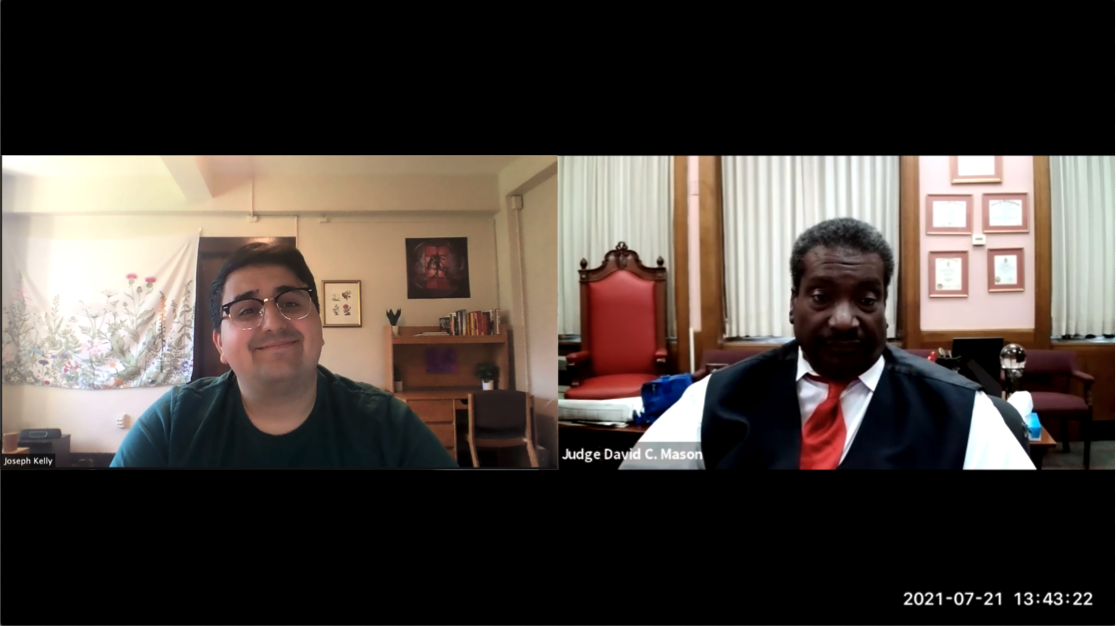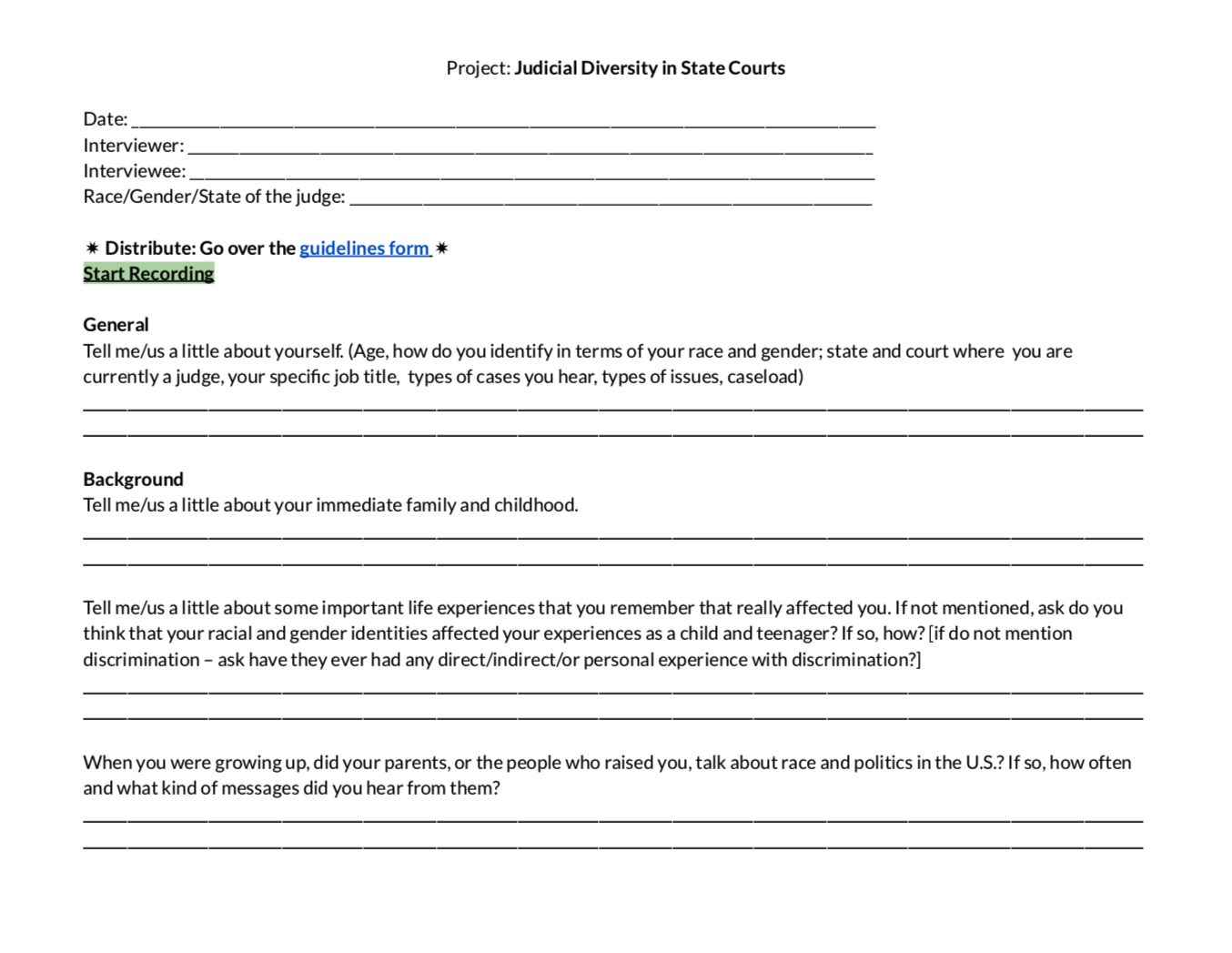In 2018, Professor Means received a grant from the National Science Foundation’s Law and Social Sciences program to collect data on political representation in state courts. A substantial body of literature has examined the importance of racial, gender, and class diversity among legislators, police officers, attorneys, doctors, and even jurors. Yet very little scholarship has focused on the level and importance of diversity among state court judges. Our study aims to advance our understanding of the lives and identities of state court judges, as well as their views on topics related to judging, justice, and court administration (more information can be found on our website). We expect our findings to yield a more comprehensive, nuanced understanding of representation in state courts that will enable a clearer articulation of the pathways judges take to the bench, as well as the extent to which the courts are being transformed by efforts to diversify. Our project strives to highlight the diversity already found on state courts, and suggest how and why that diversity is critical to fulfilling the democratic project. While most studies of the judicial system focus on the federal court, we wanted to specifically focus on the state courts as they have a tremendous impact in our society. For a majority of people, if they go to court they will be appearing before one of our nation’s approximately 30,000 state court judges.
We began this summer by continuing our effort to survey judges by sending out approximately 2,000 letters inviting judges to answer our survey. So far, 313 White judges have responded to the survey. We also have roughly 300 Black judges who have completed our survey. We hope to utilize this unique survey data in our analysis of state court judges and present them to classes in the spring.
After we finished sending out surveys we began recruiting judges to interview. This proved challenging as it was difficult to find contact information for judges. We had some contact information from judge’s who had previously expressed interest in being interviewed from our survey but we needed to find more. We then searched through court websites across the country to find more judges to contact. In the end we scheduled over 100 interviews with judges from 33 different states.
Once we had interviews scheduled we had to write the interview questionnaire. We have previously interviewed judges so we just had to update our previous questionnaire. We asked judges questions about their upbringings, childhood and young adult life experiences, pre-bench lives, identities, judgeships, judicial behavior, perspectives, and opinions.
Our experience with this study has highlighted the importance of diversity in the state court system. A lot of the judges we spoke to talked about how important it is for the demographics of the judiciary to reflect the demographics of the community it is in; people should feel they are represented in the court system. While diversity is important to the court system, it cannot be wholly relied upon to solve all of the problems of the criminal justice system. Judges expressed frustrations with the nature of our prison system, which focuses more on punitive measures rather than rehabilitation, judicial selection methods that are too partisan, and lack of funding to establish diversionary programs. However, a diverse judiciary with diverse experiences will be more able to understand people’s experiences and treat them fairly across the board. These interviews have given us a deeper understanding and a more nuanced view of the state court system.
Next year we plan on doing a deeper analysis of all the data we’ve collected from our surveys and interviews. We also plan on co authoring several papers drawing upon that data. We will present our data in Professor Means’s “Race and Gender in Judicial Politics” and “Introduction to American Politics” classes and we are planning to attend a political science conference to present on our work as well.



